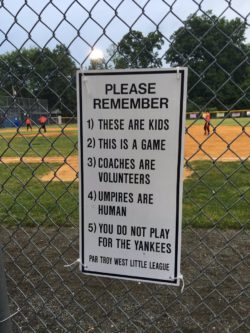Category Archives: Newsroom
Monster truck vigilantes!
Drill, baby, drill! An Obama appointee says so! What will they say about the Keystone lawsuit?
 Ultra-orthodox Jews… turning to Jesus? This… makes me kind of queasy.
Ultra-orthodox Jews… turning to Jesus? This… makes me kind of queasy.
There is a significant gravitational pull on daycare research to reach a particular conclusion. Granted, though it’s worth pointing out somewhere that the benefits of daycare to parents are manifest. So there are priorities to balance.
If nothing else, I’m honestly surprised that they’re willing to destroy this much capital because they’re not cheap to train. Sigh. The site of a pile of dead dogs really gets to me, and don’t click on the link if it gets to you.
While Britain is the epicenter, the Brexit has some ramifications for Poland, too. From what I understand Britain is still likely to bring in a lot of Poles due to other agreements. If they don’t, though, could there be any benefit to Poland from not losing the human capital?
If Blade Runner and typeface are your thing, this is the story for you. Personally, I enjoy stories about people obsessing over seeming minutiae.
Women in the US are twice as likely as Canadians to die from pregnancy and childbirth.
 Humans are intellectually ill-equipped for democracy, says science. The general public was unavailable for comment because they were too busy watching Upworthy videos.
Humans are intellectually ill-equipped for democracy, says science. The general public was unavailable for comment because they were too busy watching Upworthy videos.
Adam Ozimek argues that low-skilled labor markets need better information, on the basis of disparate Armed Forces Qualification Test results.
Marcus Winters takes issue with Hillary Clinton’s portrayal of charter schools as succeeding-through-skimming.
Cheaper desalination? Cheaper desalinization!
Estonia… the Hong Kong of Europe?
Nopenopenopenopenopenopenopenopenope!!!!
So it looks like I’ll be making a trip to Burger King.
The FDA has let it be known that it believes it will be a good thing when the ecigarette industry consolidates. Maybe they should have just gone straight to what Indiana is doing, and just say these are the only six companies we’re going to allow to sell the stuff. It’s a good deal for the six, anyway.
America's slow but very real decline into a fascist state as told by the Milwaukee Bucks logo pic.twitter.com/UTVsEyq3kg
— Nancy Jrue (@ThomasAwful) April 9, 2016
 Megan McArdle’s post about Brexit is worth a read. I thought of it when I was reading this.
Megan McArdle’s post about Brexit is worth a read. I thought of it when I was reading this.
While the University of Texas at Austin seeks diversity through affirmative action, Texas A&M went another route.
Vaping is not just for nicotine. I am increasingly envisioning a future wherein I will be assuring police officers that my vaporizer has marijuana in it and not nicotine so leave me alone.
No, CT May is wrong. Ghostbusters really was a good film, and holds up pretty well.
As Uber and Lyft pull out of Austin, others move in and drunk driving may be going up.
Americans have a love affair with European cities, but in looking for inspiration a couple of urbanists say we should really be looking at Canada.
 There used to be concern that people were not waiting long enough to find a good made. Now there is concern that they are waiting too long.
There used to be concern that people were not waiting long enough to find a good made. Now there is concern that they are waiting too long.
Well this is a shock: If you’re agreeable, attractive, and clean, you’re more likely to get married. The good news is that if you’re low in one, you can try to bone up on the other.
Roberto Ferdman interviews Stanford sociologist Michael Rosenfeld about the success of online dating.
The Book of Life has a primer on how to break up with somebody. The “be cruel to be kind” is probably right.
Vaclav Smil argues that advanced economies can’t leave manufacturing behind. He seems to be sort of arguing that we can’t because manufacturing employment is helpfully labor-inefficient, though.
It really does seem like one of the three most important things about Universal Basic Income is the extent to which we can expect the poor to mind their money carefully… and what we do if they don’t.
From the Daily Nebraskan, an interesting article on young people making the transition from home school to college. Also, homeschooling for heathens.
Taking a test? Best dress up.
This is aggressively unsurprising: Professors with more and better career alternatives make more than those without.
 According to some research, conspiracy theorizing really is a BSDI thing.
According to some research, conspiracy theorizing really is a BSDI thing.
This is one of the best liberal pieces on gun control I have ever read.
Well, when you put it that way, Trump is kind of ridiculous. (Or any other way, while we’re at it.
Ryan Cooper argues that the EU screwed up and that contributed to what increasingly looks to be a bad vote on the Brexit. Maybe. Or maybe the EU as it was imagined was not a great idea because you can’t turn peoples into a people by government fiat without speartips?
As we rush to (rightly) condemn rapist Brock Turner, it’s worth pointing out that sex offender registries are still questionable in terms of efficacy and justice.
Japan Times looks at the Japanese custom of having kids clean up the classroom. Note, however, that contrary to rumor they do actually employ custodians.
It turns out, giving away condoms may not be the best way to reduce teen births. At least, not without counseling.
Third grade? I didn’t learn cursive until the fifth, and that was back when it was a relevant skill.
Josh Blackman argues that the government cannot actually mandate that employers, landlords, and so on use of preferred pronouns.
The description of the plot of Neon Genesis Evangelion here is off, but I do kind of think that Asuka might actually be a Trump fan if they existed in the same universe.
Noah Smith is worried about Canada becoming a petrostate. Well, diversification is good, but oil per se isn’t precisely Russia’s or Nigeria’s problem, and the fact that the only other liberal democracy that is a petrostate is just fine, I suspect that’s where you would look for the good and the bad.
The Southern Baptists are going after the Confederate Flag. This… is a very good thing.
Dixie, land of the gender pioneers.
Eli Lake reports that somewhere along the way, Natan Sharansky became a realistic.
I did not know this was a thing, but apparently Hasidic Jews in New York have their own private police force.
{Ed note: The numbers are off in the tweets. She repeated nine and then skipped twelve.}
Ok wait seriously here's a list of some of what's alleged to have happe11ned with the Oakland police department: 1) a cop kills his wife
— Saque de Banda (@aurabogado) June 18, 2016
2) fellow officers help him cover up the crime, and the dead cop's wife death is ruled a suicide
— Saque de Banda (@aurabogado) June 18, 2016
3) that same cop, who people now believe killed his wife, commits actual suicide
— Saque de Banda (@aurabogado) June 18, 2016
4) the cop leaves behind a suicide note that reveals that him, and some of his fellow officers, had been raping a child trafficking victim
— Saque de Banda (@aurabogado) June 18, 2016
5) apparently, an investigation begins to reveal that several officers have, in fact, commuted child rape
— Saque de Banda (@aurabogado) June 18, 2016
6) after the child trafficking victim turns 18, more cops start paying her for sex; some of this happened in the Oakland PD parking lot
— Saque de Banda (@aurabogado) June 18, 2016
7) as the investigation continues, it's alleged that the Oakland PD chief's wife knew about the child trafficking victim rape all along
— Saque de Banda (@aurabogado) June 18, 2016
8) for this, and possibly additional reasons, Oakland PD chief steps down: whether he knew what his wife knew or not, he's unfit to lead
— Saque de Banda (@aurabogado) June 18, 2016
9) the Oakland PD chief's wife publicly tweets that "it's bullshit" right after her husband is fired
— Saque de Banda (@aurabogado) June 18, 2016
9) Oakland's mayor says the chief stepped down for "personal reasons." Girl I GUESS if you call knowledge of child rape a personal thing
— Saque de Banda (@aurabogado) June 18, 2016
10) muck racking reporters break the lid off the story and Oakland's mayor doubles down, basically saying they're lying
— Saque de Banda (@aurabogado) June 18, 2016
11) new chief is sworn in but may or may not be connected to child rape case. For whatever reason, he also steps down after a few days
— Saque de Banda (@aurabogado) June 18, 2016
13) a new NEW Oakland PD chief is sworn in and the mayor says he's great and stuff but apparently not because he steps down after two days
— Saque de Banda (@aurabogado) June 18, 2016
14) meanwhile a new scandal, this time surrounding blatantly racist, kkk and n-word having texts from Oakland PD, has emerged
— Saque de Banda (@aurabogado) June 18, 2016
15) Oakland's mayor is somehow still at her job, decides that there just won't BE a police chief because that's how rotten the department is
— Saque de Banda (@aurabogado) June 18, 2016
16) one murder, a cover-up, a suicide, child rape, racist texts, 3 police chiefs in one week; mayor asks the public to trust the process
— Saque de Banda (@aurabogado) June 18, 2016
Photo by THE Holy Hand Grenade! 
 Like it or not, Maajid Nawaz really was a Muslim, and liberals can’t let Trump have the issue.
Like it or not, Maajid Nawaz really was a Muslim, and liberals can’t let Trump have the issue.
The race to determine the motive of the Orlando shooter hasn’t been a fun ride. Everybody thinks everybody else looks silly because the newest revelation makes it so obvious.
Breaking: If you have a clean record you can easily buy a gun. Relatedly, this might be misleading. I know at least two people who have firearm dealership licenses simply so they can buy, sell, and trade for their collection, rather than being meaningful dealers in the way that people imagine.
Avi Woolf’s piece on political correctness is a little too blaming-the-outsiders-for-Trump, but otherwise a solid perspective.
The calm, sensible period is going away. Replaced by a lot of needless overpunctuation. Somewhere in here is a metaphor for the Republican Party.
Gawker may get out of the Hogan payout with some creative bankruptcy.
 Cool: A london startup is helping Mongolian nomads get their mail.
Cool: A london startup is helping Mongolian nomads get their mail.
Poland is apparently cracking down on the whole Internet Freedom thing.
Trevor Aaronson argues that the FBI’s “pursue every lead” policy actually helped the Orlando shooter slip away.
Education does police officers good. Or perhaps more accurately, having educated officers does police departments good.
Limiting flavors and taxing ecigarettes is a good way to reduce ecigarette use. Among current smokers, at least.
I always thought the GoBots origin was way more interesting than Transformers. Cracked has a list of dark toy origin stories.
 We’ve moved around a lot and will probably move at least one more time. Which I hate because I’m tired of moving. Going forward, I worry more about this.
We’ve moved around a lot and will probably move at least one more time. Which I hate because I’m tired of moving. Going forward, I worry more about this.
The physical (as opposed to voice) actor for ALF died. I didn’t know they even had an actor. I thought the few times they couldn’t use a puppet, they just had a rent-a-child-actor in there. (Does anyone else remember the trauma-inducing conclusion to that show’s run? Holy hell.)
Race relations in the US are, compared to the rest of the world, pretty good and getting better.
 This sounds right to me. They may be tacky, and the food may not be good for you, but other than that it’s as good a social hub as anything that isn’t free, and it’s cheaper than coffeehouses.
This sounds right to me. They may be tacky, and the food may not be good for you, but other than that it’s as good a social hub as anything that isn’t free, and it’s cheaper than coffeehouses.
I’m not a big James Patterson fan, but it’s hard not to admire his thirst for innovation.
Good news! Payday lenders will not be so easily thwarted by those laws.
I largely find myself in agreement with this. Which is why, while I’m not alarmed by Thiel’s involvement, I was alarmed by the outsized verdict that is causing Gawker’s bankrupcy.
Conor Sen reports that the US manufacturing renaissance, such as it was, is probably over.
If vapers can’t vape, at least half are worried about going back to smoking. The good news is that as long as they can vape…
I would bet you money that Kim Jong Un believes himself to be immune to lung cancer. I mean, what, would you tell him?!
For parties ostensibly on opposite sides, the parallels between the Republicans and Labour can be spooky sometimes.
Faster, please.
Laser Tag Island! Pretty cool concept.
Here’s a pretty cool calculator on whether it’s advantageous to rent or buy.
We must go to the moon Titan, so that we can extract its oil.
Here is definitely a place that solar power could come in especially handy: Remote cellular towers.
Ted Bromund looks at the history of the US-UK relationship.
How will international law influence a civil society in space? This space lawyer is so glad you asked.
 Verizon’s former pitchman, Paul “Can you Hear Me Now” Marcarelli, has gone with Sprint. Verizon’s response was to concede that Sprint’s network probably is as good as Verizon’s was in 2002. Anyway, I miss the X-Files guy more.
Verizon’s former pitchman, Paul “Can you Hear Me Now” Marcarelli, has gone with Sprint. Verizon’s response was to concede that Sprint’s network probably is as good as Verizon’s was in 2002. Anyway, I miss the X-Files guy more.
It turns out, when the chips are down, doctors die like the rest of us do.
Good news! The rent isn’t quite so damn high anymore. Actually it is, but it’s getting higher at a lower rate, and that’s something.
What? NO!
US versus Canada, the final smackdown.
Buzzfeed may no longer be accepting ads from the GOP, but Washington Free Beacon wants you to know it will not discriminate.
James Pethokoukis takes issue with the recent release about the US being the 41st most entrepreneurial nation in the world.Priceonomics looks at female rulers before feminism, where queens may (or may not) have been more warhawky than their king counterparts.
The thermodynamics formula for calories consumed and burned doesn’t work. Why not?
Tim Harford writes of the real costs of opportunity costs and the power of no.
Space and gravity how do they work?
Of course treadmills got their start as a torture device. Of course they did.
Once we get rid of the Confederate emblem on Mississippi’s flag, and the Union Jack on Hawaii’s, I want to go after state seals next. Relatedly, here are some great and terrible flags of cities in Texas.
Is the problem with psychodelics just dosage?
 Late last year, Jesse Singal of NYMag wrote of the left’s war on social science, citing trans researcher Alice Dreger. Last week Dreger had a piece pulled from Feminist Current after an uproar.
Late last year, Jesse Singal of NYMag wrote of the left’s war on social science, citing trans researcher Alice Dreger. Last week Dreger had a piece pulled from Feminist Current after an uproar.
Last year, Max Fisher looked at the potential Third World War.
An interesting look at the relationship between intelligence and heredity.
Whenever I think that eventually people will come around on ecigarettes because the truth will win out, I remember Snus.
Attention Mr Blue! A great New Yorker article on the Spanish Civil War, and the Americans who fought in it.
The heartwarming story of a penguin and a prosthetic foot.
Sara Miller Llana looks at the relationship between religion and support for Brexit.
France’s labor strikes are intensifying. Partially in response to this, President Hollande is suffering from some of the worst approval ratings I have ever seen. One poll has him down to 5%.
Following up on the Thiel/Gawker story, Pascal-Emmanuel Gobry gives a French perspective, and Marc Randazza falls squarely on Thiel’s side.
Donald Trump, it turns out, is not always wrong.
I don’t know if Milo Yiannopoulos is a neo-Nazi, but I do suspect he would find himself doing alright under a fascist regime.
I can understand why Reid has to research Massachusetts’s senate vacancy procedures, since they change the rules whenever the governorship changes hangs. Maybe with a Republican governor, they’ll have the interim elected by state legislature.
This sort of thing has kind of become a thing on Twitter. Not on retweets as here, but the Trump Egg has been replaced by the Trump Supporter With The First Image That Shows Up If You Google Black Guy In A Suit.
Aaron Carroll looks at some negative statistics for home births and takes the very sound view that rather than just discouraging them we ought to make them safer. Amy Tuteur responds.
Amber Lapp says that religions are not doing a good job of making people in non-prescribed family formations welcome, which she says is a problem because that’s where it could be most needed.
Did anybody else have this game? Mohammed Ali was great in it. https://t.co/E6iKnCYGIx
— Will Truman (@trumwill) June 4, 2016
Ali. Both the greatest boxer and boxing's greatest victim.
— John Podhoretz (@jpodhoretz) June 4, 2016
The Champ = my go-to example for worthlessness of IQ as measure of intelligence. The Army said his was 78. Anyone doubt he was a clever man?
— Matthew Walther (@matthewwalther) June 4, 2016
Coach Lombardi saw Ali at a sports banquet, and told an onlooker "What a waste of a tight end."
— Bijan C. Bayne (@bijancbayne) June 4, 2016
Anyone else remember when an interviewer asked Tyson about homosexuality & Alexander the Great? They *really* wanted him to be another Ali.
— Will Truman (@trumwill) June 4, 2016
Don't let Ali be white washed today. The US government tormented him for a reason: he was unabashedly dangerous. pic.twitter.com/JPU2EePOvr
— Dave Zirin (@EdgeofSports) June 4, 2016
Wondering what half of these people eulogizing Ali this morning would've said about him fifty years ago. Pretty sure I can guess.
— Sean Burns (@SeanMBurns) June 4, 2016
Isn’t progress wonderful? https://t.co/hBoVrA7GnJ
— (((Megan McArdle))) (@asymmetricinfo) June 4, 2016
He shook up the world, and the world's better for it. Rest in peace, Champ. pic.twitter.com/z1yM3sSLH3
— President Obama (@POTUS) June 4, 2016
Never knew this: Muhammad Ali Switches His Support to Reagan https://t.co/4MtOaIchKE #MuhammedAli #reagan
— Anil Adyanthaya (@AnilAdyanthaya) June 4, 2016
'The Adventures of Muhammad Ali' aired as part of NBC's 1977 Saturday morning fall lineup pic.twitter.com/idttIlwASh
— RetroNewsNow (@RetroNewsNow) June 4, 2016
As some of you all may be aware, the protests of a Trump rally in San Jose turned violent:
Donald Trump supporters were mobbed and assaulted by protesters on Thursday night after the candidate’s campaign rally in California.
The violence broke out after the event in San Jose wrapped up just before 8 p.m. local time (11 p.m. ET). Some Trump supporters were punched. One woman wearing a “Trump” jersey was cornered, spit at, and pelted with eggs and water bottles.
Police held back at first but eventually moved in. San Jose Police Sgt. Enrique Garcia told NBC News that several protesters were arrested and one officer was assaulted in the melee.
By and large, the response was largely condemnatory, crossing the ideological spectrum. It turns out, violence against attendees of a rally doesn’t go over especially well. For the most part, the main conflict occurred not in whether it was wrong, but why it was wrong. Liberal Chris Hayes and conservative Becket Adams objected to a large number of people framing it as a matter of counterproductivity, saying that it’s not wrong because it’s likely to backfire but it’s wrong because it’s wrong to be violent. Others stuck mostly to tactics. Some, however, objected to the objections:
If you too believe he’s a fascist, then ask yourself what it means to concern troll poor, Latino folks who take that belief seriously.
— Emmett Rensin (@emmettrensin) June 3, 2016
This was itself a common refrain, from several quarters. Epoch Times’s Jonathan Zhou (a Trump sympathizer) used it to blame the media for the violence in a Sarah-Palin-crosshairs-manner. Vice’s Michael Tracey (who seems to support Bernie but also hate people who hate Trump) argued that people need to decide whether Trump is a threat to liberal democracy or whether violence is unjustified because you can’t hold both positions together. This is a refrain I’ve heard quite a bit of in other contexts, mostly from liberals who seem to doubt people like me really oppose Trump: If Trump is so bad, why don’t you take even more extreme measures in your opposition to him? If Trump is a threat to this country, then isn’t anyone who supports him also such a threat?
There is some logic to this. Can we really say that political violence is never morally justified? That’s not a very tenable position in a world where others are quite willing to be violent. War is itself a form of political violence, and most would agree that war is not always wrong. Perhaps it could even be a sort of self-defense. If not personal, then societal. Our ideals aren’t a suicide pact, are they? We can make a somewhat obvious exception in the case of “they started it” or “they were threatening to.” For the most part we grant a pass to the former, though the latter gets trickier. It’s true that most of the circumstances in which violence can be justified will start from one of those two places, but the latter is always tricky and the former tricky once we get past self-defense.I cite Emmett Rensin above in defending the violence, but just last week he wrote a good argument for why punching fascists is morally problematic from a left-wing perspective:
But Marxism and its intellectual heirs reject this notion: People are not autonomous. They do not behave rationally, or freely. There are no wholly culpable autonomous actors, only the expressions of culpable systems. The violence of capitalism, for example, is not the violence of particularly corrupt individuals but the inevitable product of a material structure. Some individuals may resist or relish their role, may err on the side of restraint or of excess, but their choices are not truly their own. One can imagine a Bastille Governor who did not order his troops to slaughter peasants, but this only reflects the routine imperfection of all systems. Such a choice would be an aberration: the historical force of the Ancien Regime was designed to open fire.
It has always seemed to me that collective theories of politics would therefore resist political violence. It is easy enough to justify the occasional murder of an actor if you believe his crimes begin and end with his own choices. But if entire classes are the engine of any political crime, then a politics that justifies the killing of those responsible does not end with an execution. It ends with a holocaust. I have always hoped that this inevitability would make collectivists wary of political violence, the ends of its logic too horrifying and too clear. But history contradicts my hope. When the left has seized power, it has always found kulaks to liquidate, great leaps to take forward. It has taken precisely the nightmare that arises from Robespierre’s excuse and applied it on a grand scale. Of course no individual is wholly responsible for its crimes, it says. That’s why we have to liquidate all the kulaks.
From a personal standpoint, and quite selfishly, I cringe at the violence in part because I don’t know the extent to which the actors recognize the difference between a real fascist and someone who supports policies that some people would argue are “fascist.” The Trumpers have argued that these protests aren’t about Trump but are about disagreement, and implicit in that is “If they weren’t aiming at us, they’d be aiming at you.” If political violence becomes normalized when disagreement becomes facism, communism, or whatever, then really nobody is safe. A willingness to allow people to air their views is one part idealism, and one part non-aggression pact.
So we’re left balancing both the acknowledgement that sometimes violence is necessary, but also that it’s really hard to justify. So the question becomes, “When is political violence justified?” I would argue that there are three main criteria: Whether the threat is sufficiently certain and dire, whether violence helps lower the odds or mitigate the damage, and whether there are alternative means to that same end. Before I go through them one by one, it’s important that we establish the moral case against punching people with bad politics. It might be easy for someone to convince themselves, for instance, that if they support violent policies then we too should be able to be violent!
One of the perennial philosophical debates is whether or not one would kill (or kidnap) Baby Hitler to prevent the Holocaust and World War II. Different people come to different conclusions, but all of them rely on foreknowledge of just how dangerous Hitler became. We have no such knowledge of any current figures. We’re all guessing. They’re not guesses in the dark, to be sure, but they nonetheless require a lot of caution. This is especially true when it comes to Trump, whose political philosophy is inconsistent and ill-determined. I look at him and I see someone who sees nothing beyond himself, and his conception of self is with indifference to – or more accurately hostility towards the rules and constraints that keep our demons at bay.
Others, however, don’t see that at all. They see someone who talks spit and likes to stir things up. Or they see him as a weapon against something more nefarious. Or they view the rules and constraints as not keeping our demons at bay, but leaving us vulnerable to bigger and badder demons that would do us harm. I believe all of this is wrong, but I do not know it to be the case. He has, after all, been a functioning member of the business community for decades and has sufficiently conformed to their norms to still be a figure. As such, I have to at least leave room for people who see him differently and also believe that they do not deserve to have their faces punched in.
There is, ultimately, a difference between the fear that Trump is a demagogue who will destroy everything and the knowledge that he is. Likewise, there is a fear of something as a remote possibility and a fear of something as a likelihood. Trump represents something of a low-probability, catastrophic-consequence scenario. The worst scenario makes a lot of very vocal opposition and heated rhetoric justifiable. However, it also falls short of violence to his supporters in good part due to probabilities. There needs to be more certainty.
Political violence can be effective in a real-life revolution. It can be effective if you have sufficient strength to instill fear one way or another. This will often require you having the implicit or explicit support of the authorities though, or that you are one of the authorities. You need to be able to credibly present a threat going forward, and one that can’t or won’t be responded to with sufficient force to prevent it. It can also be effective if you can provoke the other side into becoming even more violent, though that might be bad for your health.
To the consternation of Hayes and Adams, a lot of people have skipped straight past the morality of the question straight to this one. But it’s an important question and one that, if successfully argued, makes the moral question moot. Because even if we agree that violence can be justified, and even if we believe that Trump’s supporters warrant it, if it’s not productive then sure we can condemn it, right? And while the zeroth question, the morality of violence, requires a moral consensus, and the first question is a matter of speculation, certainly people can see how this is going to go over, right?
In my view, they should be able to see it. The horror people feel may be pearl-clutching to some, but it’s pretty real. Overwhelmingly, people don’t want to see it. It’s bad optics. It feeds into Trump’s and Trumpers’ perceptions of Who The Enemy Is. It takes the worst things Trump has said about violence at his rallies and puts them in a grayer context.
But more than that, though, this is breaking a lot of eggs without so much as an omelette recipe. If violence can be justified along tactical lines, what is the plan really? Do Trumpers stop showing up to rallies, or do they start showing up armed? The best tactical argument I can think of is that eventually a Trumper will literally shoot somebody and it will make Trump look bad. I would be surprised if that’s what they want though. I believe they have convinced themselves that these conflicts hurt Trump, and I believe that’s wrong. If you’re going to try to bait them, try to bait them into hitting you. Don’t hit them to try to bait them into shooting you.
Though I suppose if you’re willing to do that, you pass the threshold of the first question.
During the primary, I advocated quite forcefully for denying Trump the nomination if he got a plurality, and even blowing everything up if he got a majority. My support for the latter ebbed once it started to look like he was doomed in the general because there was no need to wreck the process if the process would itself remove the threat. Playing convention games, though, isn’t advocating violence. The thresholds for the latter are significantly greater.
In our system, there are all sorts of intermediate measures to do our part to combat Trump, if you are inclined to want to. The lowest-threshold item is to simply vote against him, or you can vote for Hillary Clinton. You can also donate your time or money to seeing him defeated. You can register your opposition by holding out a protest sign outside of one of his rallies. You can write a blog. If it’s really dire, you can stop traffic or even damage property. There’s a spectrum with varying degrees of severity.
One seduction of violence is that it is a high-impact maneuver. Our vote is one upon a hundred millions or so and we have neither the time nor energy to have a substantial impact on a national level. Punch a guy, though, and your statement is heard across the world. People will know not only that Trump is opposed, but that you oppose him. I get the allure. But with the alternatives available, it raises questions about whether it’s about Trump or about you. That’s something to mull over, anyway.
Democracy, as they say, is the worst system except all others. One of the things that makes it less bad, though, is that it allows us a means to resolve issues without resorting to violence. There are scenarios where violence is the only way, but rarely is that true in a democracy. If it is true in a democracy, it involves drawing attention to a threat that people are unaware of. Whatever else we might say about Trump, people are aware of him.
This ties into the second factor: effectiveness If Trump is going to win the presidency, then you are likely emboldening the majority. If his is a minority, then democracy is there to handle that. And if it’s counterproductive, then literally doing nothing is more effective.




